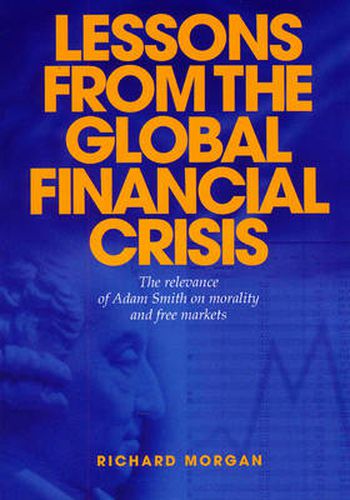Readings Newsletter
Become a Readings Member to make your shopping experience even easier.
Sign in or sign up for free!
You’re not far away from qualifying for FREE standard shipping within Australia
You’ve qualified for FREE standard shipping within Australia
The cart is loading…






Adam Smith was an advocate of the free market; however his first and widely-acclaimed work, The Theory of Moral Sentiments, was on ethics. While commentators tend to review this work in isolation from his writing on political economy, Richard Morgan argues that although The Wealth of Nations is concerned with political economy, Smith’s pointed attacks on exploitation and greed reflect the ethics outlined in his first work and illuminate the constructive role he proposed for government, which includes ensuring the provision of education and protection of society by regulating the banking system, even while stressing that government regulations be kept to a minimum. Morgan’s analysis is extremely relevant to understanding the global financial crisis and the relevance of morality in the free market; it should guide us in setting appropriate policies for the future.
$9.00 standard shipping within Australia
FREE standard shipping within Australia for orders over $100.00
Express & International shipping calculated at checkout
Adam Smith was an advocate of the free market; however his first and widely-acclaimed work, The Theory of Moral Sentiments, was on ethics. While commentators tend to review this work in isolation from his writing on political economy, Richard Morgan argues that although The Wealth of Nations is concerned with political economy, Smith’s pointed attacks on exploitation and greed reflect the ethics outlined in his first work and illuminate the constructive role he proposed for government, which includes ensuring the provision of education and protection of society by regulating the banking system, even while stressing that government regulations be kept to a minimum. Morgan’s analysis is extremely relevant to understanding the global financial crisis and the relevance of morality in the free market; it should guide us in setting appropriate policies for the future.